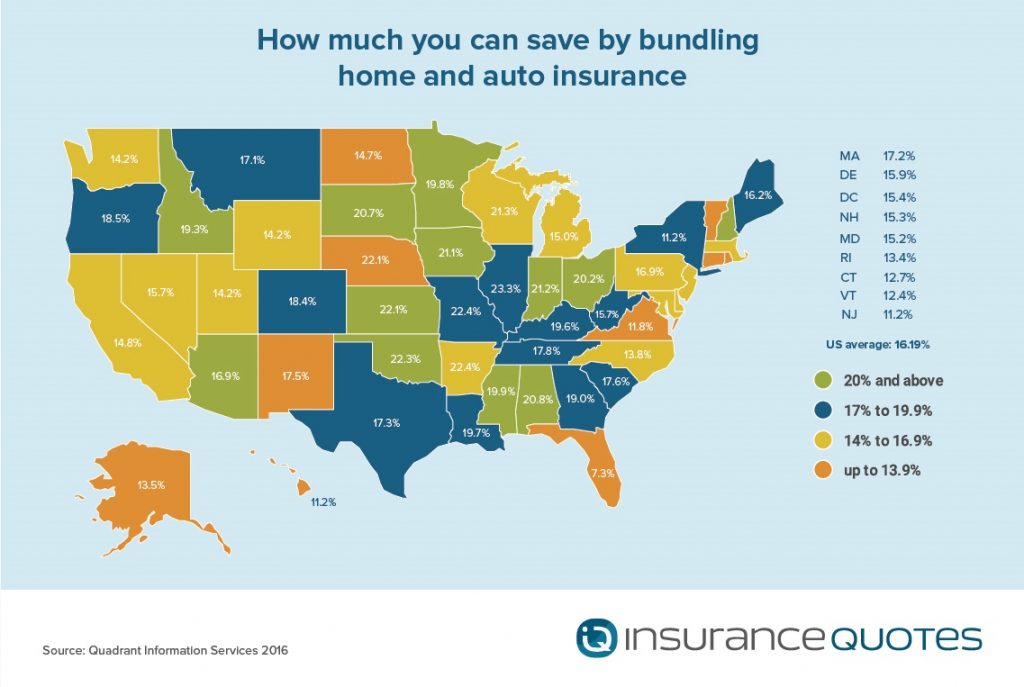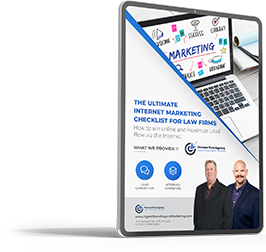Introduction
In today’s digital landscape, how people search for information is about to undergo a major transformation—one that could reshape how customers discover businesses like yours. For years, Google has been the main gateway to finding local insurance agents, researching policies, and learning about coverage options. But now, two big developments are shaking up this long-standing system: antitrust cases that could limit Google’s power and the rise of new AI-powered search platforms that offer a smarter, faster way to find what people need. As these changes unfold, they’re opening up exciting new opportunities and challenges for local insurance agents. Could these shifts be the key to reaching more clients and standing out in a competitive market? Let’s explore how these evolving technologies and legal rulings may change the way your business connects with future clients.
Key Takeaways
- Online Search is Transforming Rapidly: Major changes in online search are underway due to antitrust cases against Google and the rise of AI-powered search engines, which could alter how clients find businesses like insurance agencies.
- Antitrust Actions Against Google Aim to Boost Competition: Recent rulings label Google as a monopolist, potentially opening the search market to more competitors. This shift could create new opportunities for insurance agents to reach clients on alternative platforms.
- AI Search Engines Offer Personalization: New AI-driven search platforms like Perplexity.ai and SearchGPT provide smarter, more tailored answers to user queries, which can help insurance agents connect with highly targeted audiences based on specific needs.
- Expanding Search Options May Reduce Marketing Costs: As competition increases, ad costs may decrease, providing smaller agencies with more cost-effective ways to achieve visibility across different search platforms.
- Adapting to Regulatory and Technological Shifts is Key: Staying informed about regulatory changes and new AI tools will allow insurance agents to make smarter marketing decisions and maximize their online presence in a more competitive digital environment.
- Preparing for the Future: As Google and AI platforms continue evolving, insurance agents should explore new strategies to ensure their business remains accessible to clients across both established and emerging search technologies.
I. Antitrust Cases Against Google
A. Background on Google’s Monopoly Lawsuit
In 2020, the U.S. Department of Justice (DOJ) filed a lawsuit against Google, claiming the company’s control over the search market gave it an unfair advantage that limited competition. They argued that Google’s dominance restricted the number of platforms available to users. Judge Amit Mehta agreed, and in 2024, he ruled that Google’s practices were indeed monopolistic, officially labeling the tech giant a “monopolist” with too much control over the market.
For insurance agents, this decision could impact how visible your business is online. If more companies are able to enter the search industry, traditional SEO (search engine optimization) strategies may shift, especially if other platforms start gaining users. The ruling also raises questions about fairness in search results and ad pricing, which could lead to new ways for businesses like yours to reach clients in an increasingly competitive landscape.
B. Proposed Remedies and Their Potential Impact
With Google now officially labeled a monopolist, the DOJ and other regulators are discussing possible solutions, known as “remedies,” to foster more competition. Key proposals include:
- Breaking Up Google’s Services: This approach would separate Google’s various businesses—such as search, YouTube, and advertising—into independent companies.
- Changing Default Search Options: Many devices currently use Google as the default search engine. Allowing other engines to compete as defaults could give users more choice and help level the playing field.
For insurance agents, these changes could affect where and how your business appears in search results, and which platforms your clients use to find insurance information. A more diverse search landscape might even offer greater control over ad spending, providing more options for reaching clients across different search platforms.
II. Rise of AI-Powered Search Platforms
While Google navigates legal challenges, a new type of search engine is gaining attention—AI-powered platforms that deliver a more intuitive way to find information. AI search engines interpret complex questions and provide tailored, relevant answers.
A. The Advantages of AI Search Technology
Unlike traditional search engines that rely mainly on keyword matching, AI search engines can understand the intent behind users’ questions. For example, if a potential client searches for “best insurance plan for new homeowners in Texas,” an AI-powered platform can consider factors like location, home size, and specific insurance needs to deliver more relevant results.
This approach saves users time by offering personalized responses that go beyond simple keyword searches. As a result, these AI platforms are quickly attracting users, which means insurance agents should consider how these tools can enhance their digital marketing strategy.
B. Noteworthy AI Search Platforms
Let’s take a closer look at two major players in the AI search space—Perplexity.ai and SearchGPT.
1. Perplexity.ai
Perplexity.ai is quickly becoming popular for its user-friendly design and clear, accurate answers. This platform’s simplicity and precision have helped it reach a valuation of $9 billion, highlighting the growing demand for AI-driven search. For insurance agents, Perplexity.ai could be a valuable tool for ensuring that your local presence is optimized in this emerging space.
2. SearchGPT by OpenAI
SearchGPT, developed by OpenAI, offers an interactive, conversational search experience. Users can refine their results by asking follow-up questions, making the process feel more like a two-way conversation. For insurance agents, SearchGPT’s ability to handle specific inquiries—like “affordable family insurance plans” or “local agents with expertise in life insurance”—could be an effective way to connect with clients who are looking for tailored solutions.
III. Intersection of Antitrust Rulings and AI Search Platforms
As Google’s market dominance faces legal scrutiny and AI search platforms gain popularity, the search industry could see significant changes. How might this impact local insurance agents?
A. Shifts in Market Competition
If Google’s position in the search market weakens, AI-powered platforms could quickly gain users. For insurance agents, this shift presents an opportunity to explore new platforms that may help you reach audiences more effectively. A more competitive market could lower ad costs, giving smaller agencies a better chance to compete for visibility. AI search engines could match your agency with clients based on more specific needs, like location, policy type, or client demographics.
B. New Opportunities and Challenges for AI Search
Although AI platforms offer considerable opportunities, they also face obstacles, such as gaining user trust and meeting regulatory standards. For insurance agents, staying informed about the performance of these platforms will be key to making smart marketing decisions. As AI-powered search engines continue to develop, agents can adjust their SEO and advertising strategies to reach clients on both traditional and emerging platforms.
IV. The Future of Online Search for Insurance Agents
Looking ahead, online search is set to evolve in ways that could benefit businesses like yours.
A. Enhanced User Experience with AI
AI-powered platforms offer a more personalized user experience by going beyond simple keyword searches to understand a user’s actual needs. For example, if a client searches for “first-time homeowner insurance,” an AI-powered platform can respond with information specific to their situation. This approach could help clients find your agency based on details unique to your services, like experience with young families or expertise in home insurance.
B. New Regulatory Considerations
As AI becomes more central to online search, lawmakers are paying close attention to ensure fair competition, protect privacy, and prevent monopolistic practices. These regulatory changes will impact how companies operate and how users find information. For insurance agents, staying aware of new regulations will be crucial as you decide which platforms are best suited for reaching your target audience.
C. Responses from Major Search Companies
Despite the challenges, Google is unlikely to disappear. To stay relevant, it has already started rolling out AI-enhanced features, such as “multistep reasoning” and “AI overviews,” which improve the search experience. For insurance agents, this means both established search engines and new AI-driven platforms will continue to evolve. Being adaptable and informed about these changes will help you maximize your online presence.
Conclusion
The future of online search is changing rapidly, driven by antitrust rulings and advances in AI technology. For local insurance agents, these changes bring both challenges and exciting opportunities to reach clients in new ways. The rise of AI-powered search engines could help you connect with clients more effectively, while the antitrust rulings could increase competition and diversify how customers find businesses online. By staying updated on these trends and adapting to them, your business can stay visible and competitive in a shifting digital landscape.
If you’re ready to elevate your digital marketing strategy and leverage the latest advancements in online search, schedule a strategy session with Agent Branding & Marketing today. Our team will help you navigate these changes, ensuring your business attracts more clients and builds lasting connections in this evolving digital world.
The information presented in this blog post is derived from various reputable sources, including:
- “Judge Rules on US DOJ v. Google Antitrust Search Suit,” The Verge, August 5, 2024.
- “Google Search Antitrust Case,” AP News, August 5, 2024.
- “Perplexity Raising New Funds at $9 Billion Valuation, Source Says,” Reuters, November 6, 2024.
- “OpenAI Takes on Google with ChatGPT Search Engine SearchGPT,” New York Post, November 1, 2024.
FAQs
Why is Google facing antitrust lawsuits, and what does it mean for insurance agents?
Google is facing antitrust lawsuits because of its dominance in the search engine market, which the U.S. Department of Justice argues limits competition. This monopoly status could restrict opportunities for businesses to reach customers through other search engines. For insurance agents, the lawsuits may lead to a more competitive search environment, creating opportunities for new platforms to enter the market and potentially reducing advertising costs.
How do AI-powered search engines like Perplexity.ai and SearchGPT differ from traditional search engines?
AI-powered search engines go beyond basic keyword matching. They can understand the intent behind complex queries and provide highly personalized answers. For instance, a search for “best insurance for new homeowners in Texas” could yield detailed, tailored responses based on various factors, helping clients find the most relevant information faster.
Will these new AI search engines replace Google?
While AI search engines are gaining traction, Google is still a major player and has already begun integrating AI technology into its platform. It’s unlikely that Google will be fully replaced, but competition from AI-driven platforms may lead Google to adapt and enhance its features. This growing diversity in search engines benefits insurance agents by offering more channels to reach potential clients.
What advantages do AI-powered search engines offer to insurance agents?
AI-powered search engines allow for more precise targeting based on a client’s unique needs, such as location, insurance type, and demographic details. This means that insurance agents can connect with potential clients who are searching for specific coverage, creating a more direct and personalized engagement compared to traditional search methods.
How could changes in search engine competition affect ad costs for insurance agents?
As more search engines enter the market, increased competition could lead to lower advertising costs. This environment may provide smaller agencies with more affordable options to compete for visibility, offering cost-effective ways to reach targeted audiences.
What regulatory changes should insurance agents be aware of regarding search engines?
Regulators are closely monitoring the influence of tech giants and AI technology to ensure fair competition and protect user privacy. As these rules evolve, insurance agents should stay informed, as new regulations could influence which platforms are most effective for marketing and client acquisition.
How can insurance agents prepare for the future of online search?
Insurance agents can prepare by staying updated on both regulatory developments and new AI-driven search tools. Exploring new strategies, adjusting SEO for AI search engines, and diversifying advertising efforts across multiple platforms will help agents remain visible and competitive as online search evolves.
This article is a collaboration between Carl Willis and OpenAI’s ChatGPT. Created on November 6, 2024, it combines AI-generated draft material with Willis’ expert revision and oversight, ensuring accuracy and relevance while addressing any AI limitations.






